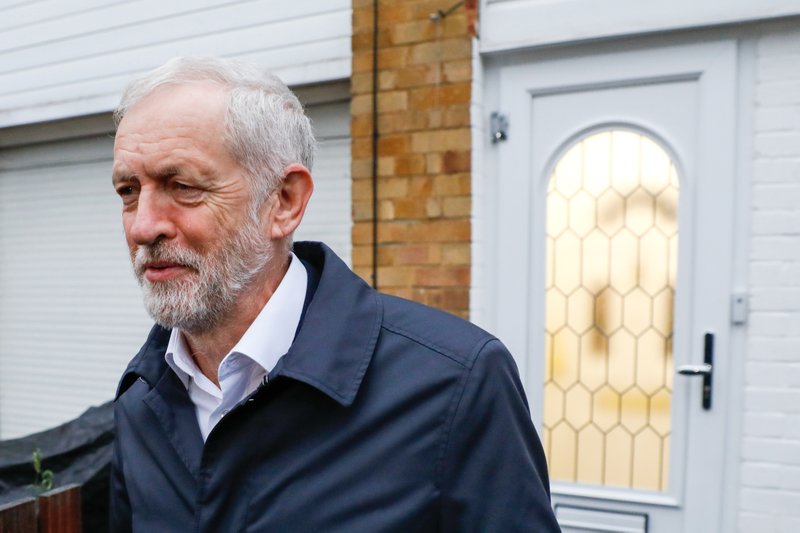Britain's parliament is debating Brexit, and Prime Minister Theresa May is playing for more time as various factions try to influence the endgame. Her goal is to deliver her divorce deal without dividing her party.
Just 44 days remain until Britain exits on March 29 (unless both sides agree to an extension). If nothing happens, the U.K. will leave without a deal. The potential for such a major political and economic shock concentrates minds.
A big change is that the Labour Party, led by Jeremy Corbin, has finally joined the Brexit debate for real. Brexit was a Conservative project and Labour, just as divided on the issue, wanted the government to own the mess.
Labour shifted its policy in two key areas last week. It has dropped its insistence that any Brexit deal should deliver the "exact same benefits" as actual European Union membership. That was never possible. It has also quietly abandoned its opposition to the Irish backstop, the controversial provision in May's deal that could tie Britain into the EU customs union indefinitely.
Last year Corbyn was clear that "there certainly wouldn't be a backstop from which you can't escape." But in a letter to the prime minister last week setting out his five demands for Brexit, he acknowledged that "any withdrawal agreement would need to include a backstop."
Corbyn's main requirement is that the U.K. commits to stay in the EU's customs union and continues to be bound by the bloc's rules in a number of areas. It is a call for the softest of Brexits consistent with leaving the EU's single market and ending free movement. Remember that many Labour "leave" voters were persuaded by anti-immigrant arguments in the referendum.
With Corbyn's offer, a parliamentary majority exists for a Brexit deal that reclaims control over Britain's borders, a key requirement for May and many leave voters, and which removes the need for a backstop. That also lessens any pressure on the EU to come up with a game-changing concession.
May has so far rebuffed Corbyn. But Labour and government officials are still talking, and she is promising handouts and concessions on areas like workers' rights to woo the opposition.
However the negotiations and votes unfold, the government and opposition will need to be aligned on avoiding a chaotic no-deal exit and preserving the letter and spirit of the Good Friday Agreement that brought peace to Northern Ireland. At the moment, the only ways to satisfy both while delivering on Brexit (which both leaders say they want) are Corbyn's proposal or May's deal, spiced with whatever the EU feels it can give her.
If May's Conservatives reject both, the government must be willing to contemplate putting the question to the public, either in a referendum or a new election.
Editorial on 02/13/2019
